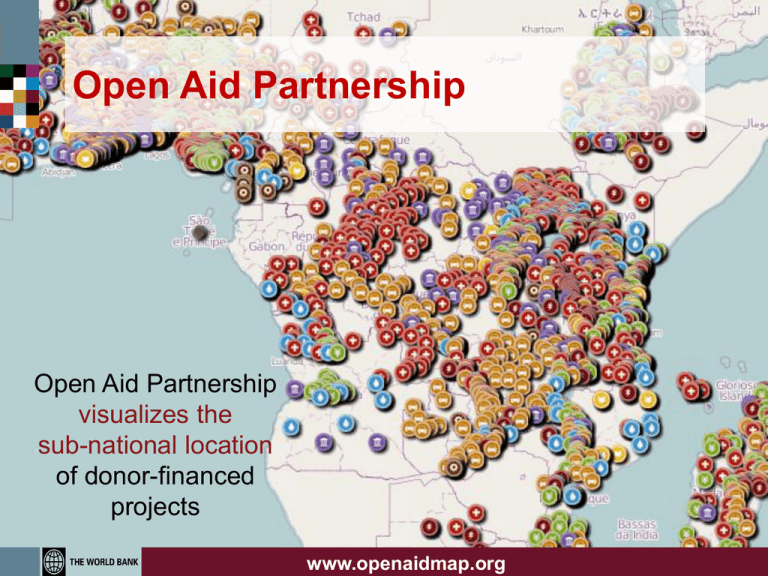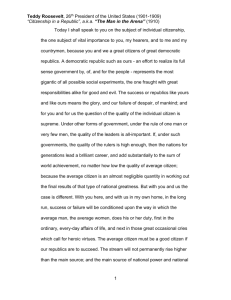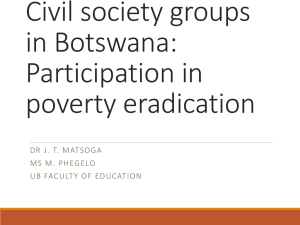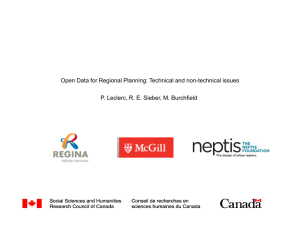Open Aid partnership PowerPoint
advertisement

Open Aid Partnership Open Aid Partnership visualizes the sub-national location of donor-financed projects www.openaidmap.org Open Aid Partnership- Objectives • Improve Aid Transparency: increase transparency through Open Data on aid flows and public service delivery • Enhance Results: Better target, monitor, and coordinate aid flows within countries • Establish Feedback Loop: Empower citizens and CSOs to provide direct feedback on project outcomes Increase Aid Transparency and Citizen Engagement for Better Results What we have done so far: Mapping for Results • All Bank-financed projects are mapped • Maps for all 144 IBRD and IDA countries developed • More than 30,000 project locations mapped combined with sub-national MDG indictors (poverty, infant mortality, malnutrition) • Visualized geographic locations for 2,500 active Bank projects maps.worldbank.org Mapping at Various Levels Regions Countries Sectors Projects maps.worldbank.org Are health projects in areas with the highest infant mortality? Key Components of Partnership • Open Aid Map a common platform to show locations of donor programs • Country Platforms for open aid flows and public expenditures • Citizen Feedback Loops to promote citizen engagement in the delivery of public services • Capacity Development to empower CSOs and Citizens to effectively use and generate data • Impact Evaluations to assess the impact of open aid on development outcomes 1) Open Aid Map • Geo-coding of donor-financed projects based on IATI standard • Joint Open Aid Map for better aid coordination (AidData) • Visualize projects of 27 donors combined with poverty data How can we map our projects? 2) Country Mapping Platform Enable governments to collect, make openly available and visualize data on development assistance, budgets and public service delivery Nepal Country Platform Pilot Poverty and WB projects Public Expenditures WB and USAID projects Feedback Loop Haiti CommunityBased Reporting 4) Capacity Development • Raise awareness among citizens about the power of open data • Strengthen Capacity of CSOs and Citizens to effectively use and generate open data • Engage, connect and empower communities to act upon provided data • Assist public service provider in receiving and responding to citizen feedback 5) Impact Evaluations • Provide an objective basis for assessing impact of Open Aid and Citizen Feedback Loops • Use Randomized Controlled Trial and Participatory Action Learning • Document and disseminate the lessons learned from evaluation findings











